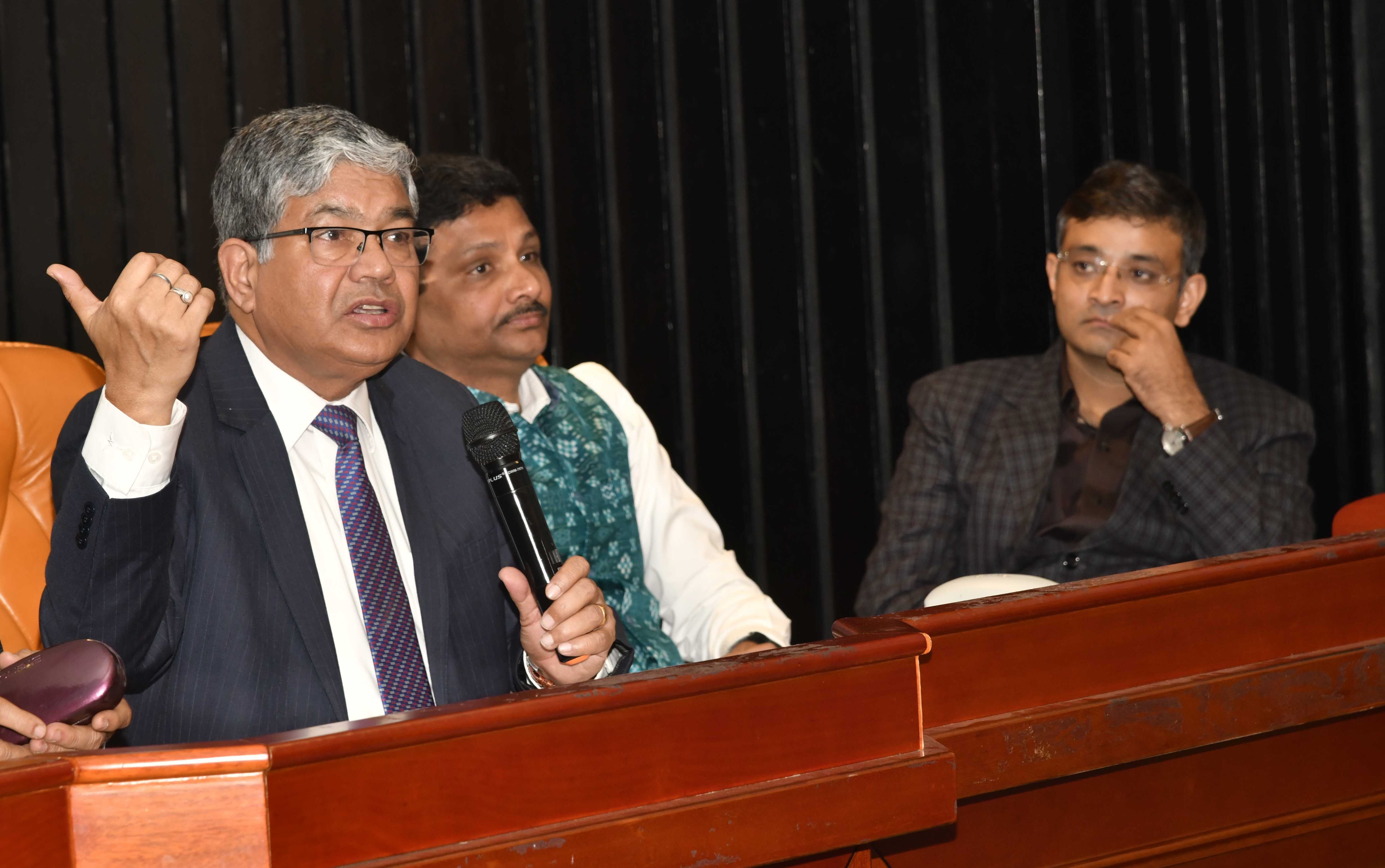Agriculture is the backbone of India’s rapidly-transforming economy, and one of the government’s major challenges is the increasing burden of agricultural subsidies. Direct Benefit Transfers (DBT)—paying subsidies straight into the bank accounts of beneficiaries—is seen as one of the most promising pathways to enhance the efficiency of subsidy programs, and the government has been introducing DBTs in the farm sector.
What has the experience of implementing DBT for millions of farmers been like? Do cash transfer programs improve farmers’ available choices and reduce transaction costs? Policy makers, academics, entrepreneurs, and representatives of farmer organizations gathered on Dec. 29 in Raipur, Chhattisgarh, to explore these issues at a panel organized by IFPRI South Asia at the 102nd Annual Conference of the Indian Economic Association.
“We are in the process of transforming the Indian economy. So, Indian agriculture must also transform,” said Agricultural Economics Research Association President P.K. Joshi, the panel co-chair. “For agriculture to transform, several reforms are essential to improve the efficiency, sustainability, and agricultural resilience. We have to consider either to continue with the existing subsidy or we move towards Direct Benefit Transfer, to make agriculture more competitive.”
Although DBT and income support mechanisms for farmers have been widely implemented in various states, there is lack of empirical research on the experience of designing and implementation of DBT programs. Delivery mechanisms often fail to account for beneficiaries’ choices and preferences, in part because farmers typically don’t participate in the planning process.
IFPRI Research Fellow Anjani Kumar urged that the ethos of DBT be based on “ensuring inclusiveness and sustainable agricultural growth.” Programs should take steps to verify participation and eliminate duplicate names from beneficiary lists to reduce double-dipping, he said.
Panelists considered two principal lines of thought in the policy debate regarding the ideal delivery mechanism for farmer support. The first supports a gradual move towards a system based on coupons or Direct Cash Transfers (DCT). The alternative is in-kind transfers with increased monitoring and enforcement, and expansion of coverage.
Pratap S. Birthal, National Professor at the National Institute of Agricultural Economics and Policy Research (ICAR-NIAP), noted various persistent problems with subsidy programs. Subsidies are often unequally distributed and large farms tend to benefit more, he said. In addition, once a subsidy is introduced, it becomes very difficult to repeal, as farmers become dependent on it. He also wondered “whether these schemes are formulated by the policy makers to appease the farmers, or can these schemes be taken to an international forum like the World Trade Organization (WTO)?” India is an important country taking advantage of WTO Green Box subsidies, i.e., officially defined as not trade-distorting. However, India has lately been criticized and come under WTO scrutiny on this front. Subsidy programs should be re-oriented to comply with WTO provisions, Birthal said.
Fertilizer subsidies are another huge challenge. “Fertilizer subsidy reforms could be one of the biggest agricultural reforms that will save resources for investments in farmers’ welfare,” said Arabinda Kumar Padhee, Director of Country Relations and Business Affairs at the International Crops Research Institute for the Semi-Arid Tropics (ICRISAT).
These programs impose a liability on the government of approximately $1 billion due to the economic inefficiencies of the fertilizer industry and importers. Subsidy payments go directly to companies, which provide fertilizer at lower cost to farmers who qualify. DBTs to farmers are being discussed as an alternative. However, the biggest implementation problem for DBT in fertilizer is accurately identifying beneficiaries. Due to the widespread lack of proper identification and verification, any big farmer can go to a fertilizer retailer and get a bag of subsidized fertilizer regardless of need.
IFPRI research collaborator Deepak Varshney presented the findings of a study on the Pradhan Mantri Kisan Samman Nidhi (PM-KISAN) cash transfer scheme, which provides $84 annual payments to 140 million eligible farmer families in two installments. The study showed that the timing of the transfers is critical. Money provided during the peak agriculture season has a greater impact for farmers, as they tend to spend more on productive inputs or assets during the sowing season. The data shows that 52% of the first installment released in the sowing season was spent on agricultural inputs, while 40% of the second installment, released in the off-peak season, was spent on consumption, and 23% on agriculture.
“Government subsidies are aimed to ease the burden of the farmers. Technology use reduces the pilferage and the government is aiming for providing better fertilizers,” said Chhabilendra Roul, Secretary in the Ministry of Chemicals & Fertilizers, who co-chaired the session. To ensure that cash transfers are used for agricultural inputs, the government is developing solutions such as e-wallet and pre-loaded fertilizer debit cards. These mechanisms, he said, will allow virtual tracking of cash transfer spending patterns, helping to ensure that the benefits used to improve cultivation and other agricultural practices, to maintain productivity and build food security.
Rebika Laishram is a Communications Specialist and Anjani Kumar is a Research Fellow with IFPRI’s South Asia Region (SAR) office in New Delhi.







